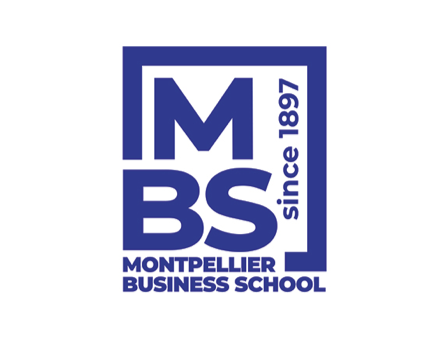Third best city to live in France. Close to the sea. Christian Lacroix-designed kaleidoscopic tram cars. Twisting passages of history interspersed with today’s coolest shops. A short flight away to Barcelona and Paris.
Montpellier is an atmospheric city that charms many and the inspiring setting for the aspiring corporate and enterprising leaders of tomorrow at Montpellier Business School. “Montpellier is such an international and welcoming city. It’s like the new and old put together. The young yet ancient city, the architecture, the food, the weather — everything is so great!” shares Master of Science student Parker Henry from the US.
Founded in 1897, Montpellier Business School is a member of the eminent French Conference des Grandes Ecoles with triple-accreditation from AACSB, EQUIS and AMBA — a recognition of its academic quality.
It’s a business school with grander ambitions than producing profit-driven managers. Curricula reflects its commitment to both academic quality and an unwavering commitment to its values: ethics, openness, diversity, global responsibility and performance. Here, every student evolves into graduates who can manage the financial, social, societal and environmental performance of their company and organisation.
Numbers, on the other hand, reflect the quality of the English-medium postgraduate courses here. The Master in Management is ranked 61st in the world (Financial Times 2020) and the rate of graduates landing jobs within six months is 95%.
International, professional and ethical — this is a master’s where students can go on academic exchanges and internships abroad; take up a double degree or foreign language course; work while studying; go on a gap year; join a start-up incubator. Strong ethical values — solidarity, social responsibility, equity, diversity, to name a few — are infused into every aspect of this programme. “It has a lot of options and very specific programmes, which is amazing for someone who’s trying to start a career in business,” says Master in Management student Clara Galvez.
For those seeking an international career in a specialised field, there are five Master of Science (MSc) programmes to choose from: Finance, Marketing, Digital Transformation, Business Excellence and International Business. The programme can be completed in either one or two years, depending on a candidate’s undergraduate background and English proficiency. Many sub-specialisations are available for students looking to gain more in-depth knowledge of their chosen fields.
Xu Liang from China gained four years of working experience from her home country before choosing to continue her education at Montpellier Business School with an MSc in Marketing. “The teaching method here is focused on practising and I believe this can be very helpful in my future career. They give us guidance for us to start, to follow and to complete a project,” she says.
These postgraduate courses are offered in English, but are set in what’s known as France’s most forward-looking city. It was the perfect unknown for Italian Fredrica Ongetta to discover after completing her bachelor’s degree back home. She wanted personal and professional development — to be an expert in a complex field, such as financial management, as well as to be a more mature and open person. “That’s why I wanted to pursue an MSc in a foreign country that appealed to me a lot: France!” says the MSc in Finance student.
Looking back, Ongetta is grateful to her finance professor back home for recommending Montpellier Business School for the quality of teaching and its highly esteemed teachers. She has no regrets for making this choice.
“Coming to France to pursue specialised training, taught entirely in English — it’s double immersion! Not to mention the multicultural environment of Montpellier Business School. The student body is international, everyone is from a different country, whether it’s China, Mexico, Morocco, Tunisia, the Dominican Republic, or somewhere else,” Ongetta enthuses.
For students looking to pursue undergraduate studies, the Bachelor of International Business Administration (BIBA) programme provides a human-centred curriculum, a career placement year, and personalised support to discover and build one’s individual career paths. What sets this degree apart even more is its focus on languages and communication. Armed with these versatile skills, half of BIBA graduates have progressed into master’s studies; employed graduates report an average annual salary of 30,000 euros with a 97% employment rate six months after graduation.
You can be one of them — get ready to change the future at Montpellier Business School, learn more here.
Like this? Then you’ll love…
Why choose France for your higher studies?
It’s time for universities to revolutionise financial education. Here’s why











